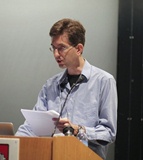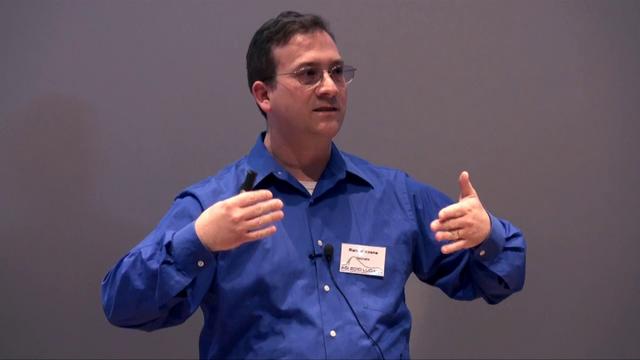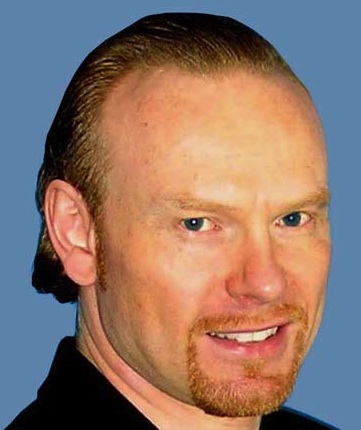|
TOWARD A SCIENCE OF CONSCIOUSNESS Pre-Conference Workshop
Preserving Consciousness: How a missing science of consciousness hobbles life-saving medical research
Presenters: Kenneth Hayworth, Randal A. Koene, Max More Date: Monday, April 21, 2014 Session: 2:00-6:00 PM Room: TBA Kenneth Hayworth Randal A Koene Max More
Preserving Consciousness: How a missing science of consciousness hobbles life-saving medical research
When it comes to neuroscience, it seems science fiction is quickly becoming reality. Hundreds of thousands of people now benefit from direct neural interfaces in the form of cochlear and deep brain implants. 3D electron microscopy can now routinely map out the precise nanometer-scale synaptic connectivity of small pieces of fixed animal brains. Two-photon calcium imaging can record the exact firing patterns of hundreds of neurons in an awake animal. Prosthetic replacement of a cognitive brain region (beginning with a region of the hippocampus) are moving from rat to primate to human trials. And governments and private institutions are directing billions of dollars into massive neuroscience projects such as the European Human Brain Project, the USA BRAIN Initiative, and the Allen Institute’s Mindscope project, whose target goals are astonishingly ambitious. If progress continues at this pace it seems likely that we will have a complete mechanistic understanding of the brain by the end of this century and will possibly even have the technological tools necessary to record the anatomy and physiology of a specific brain so as to upload individual human minds by brain emulation in computers or neuromimetic hardware. Given this backdrop, more and more scientifically minded individuals are asking whether there may be a way of saving lives through neuroprosthetic replacement, possibly even by preserving a brain in a static state able to last a century or more until such neuroprosthetic replacement is technologically mature. Could it be that we are closer to these life-saving medical procedures than most of us realize? And is the lack of a science of consciousness complicit in the absence of such a realization? Without an accepted science of consciousness most people dismiss the possibility of mind uploading even though that dismissive stance is not supported by science. Questions abound: Would a mind with a neuroprosthetic brain be “just a copy” of the original mind, somehow falling short of retaining “identity”? Would it be a “philosophical zombie”? Our different subjective intuitions about the nature of consciousness and the continuity of the self lead to many possible answers and attitudes about medical life-saving technology. This workshop will explore the technical merits of such proposals as well as how they hinge on what is the correct model of consciousness and how it is mapped onto the circuits of the brain. It will also address some deep philosophical questions that these proposals raise, such as whether there is a “further fact” (Derek Parfit’s term) to an individual’s identity beyond the sum of their memories and personality.
Kenneth Hayworth Consciousness and the Connectome: How brain circuits encode the self Kenneth Hayworth is president and co-founder of the Brain Preservation Foundation (BPF), an organization formed to skeptically evaluate cryonic and other potential human preservation technologies by examining how well they preserve the brain’s neural circuitry at the nanometer scale and calls for the implementation of an emergency glutaraldehyde perfusion procedure in hospitals, and for the development of a whole brain embedding procedure which can demonstrate perfect ultrastructure preservation across an entire human brain. As a Senior Scientist at the Howard Hughes Medical Institute’s Janelia Farm Research Campus (JFRC) in Ashburn, Virginia, Hayworth is currently researching ways to extend Focused Ion Beam Scanning Electron Microscopy (FIBSEM) imaging of brain tissue to encompass much larger volumes than are currently possible. JFRC is perhaps the leading research institution in the field of connectomics in the United States. Prior to moving to JFRC, Hayworth was a postdoctoral researcher at Harvard University. He received a PhD in Neuroscience from the University of Southern California for research into how the human visual system encodes spatial relations among objects. Dr. Hayworth is co-inventor of the ATUM-SEM - Tape to SEM process for high-throughput volume imaging of neural circuits at the nanometer scale and he designed and built several automated machines to implement this process. Hayworth is a vocal advocate for brain preservation and mind uploading and, through the BPF’s Brain Preservation Prize, he has challenged scientists and medical researchers to develop a reliable, scientifically verified surgical procedure which can demonstrate long-term ultrastructure preservation across an entire human brain. Once won, Hayworth advocates for the widespread implementation of such a surgical procedure in hospitals. Several research labs are currently attempting to win this prize. Randal A. Koene The Functionalist Wager: Separating consciousness and personal identity from substrate Randal A Koene is CEO and Founder of the not-for-profit science foundation Carboncopies.org as well as the neural interfaces company NeuraLink Co. and is Science Director of the 2045 Initiative and a scientific board member in several neurotechnology companies and organizations. Dr. Koene is a neuroscientist with a focus on neural interfaces, neuroprostheses and the precise functional reconstruction of neural tissue, a multi-disciplinary field known as (whole) brain emulation. Koene's work has emphasized the promotion of feasible technological solutions and "big-picture" roadmapping aspects of the field. Activities since 1994 include science-curation such as bringing together experts and projects in cutting-edge research and development that advance key portions of the field. From 2010-2012 Dr. Koene was Director of Analysis at the Silicon Valley nanotechnology company Halcyon Molecular and Director of the Department of Neuroengineering at Tecnalia, the third largest private research organization in Europe (2008-2010). Dr. Koene founded the Neural Engineering Corporation (Massachusetts) and was a research professor at Boston University's Center for Memory and Brain. He earned his Ph.D. in Computational Neuroscience at the Department of Psychology at McGill University, as well as an M.Sc. in Electrical Engineering with a specialization in Information Theory at Delft University of Technology. Dr. Koene is a core member of the University of Oxford working group that convened in 2007 to create the first roadmap toward whole brain emulation (a term Koene proposed in 2000). Dr. Koene's professional expertise includes computational neuroscience, neural engineering, psychology, information theory, electrical engineering and physics. In collaboration with the VU University Amsterdam, Dr. Koene led the creation of NETMORPH (netmorph.org), a computational framework for the simulated morphological development of large-scale high-resolution neuroanatomically realistic neuronal circuitry.
Max More Consciousness Preservation through Cryopreservation: A Bridging Strategy Max More is president and CEO of the Alcor Life Extension Foundation, the largest provider of cryonics services in the world. He was co-founder and Chairman (until 2007) of the Extropy Institute, an educational non-profit organization that created the modern "transhumanist" movement, whose goals centrally include extending healthy human life span. Known for his essays and lectures on transhumanism, he is sought after as a philosopher futurist and consults on the impact of new and emerging technologies on businesses and other organizations. An internationally recognized advocate of the effective and ethical use of technology for life extension and cryopreservation, Dr. More brings experience in running non-profit organizations, many years of analyzing and writing about business organizations, and a long commitment to Alcor's mission. More joined Alcor in 1986 as its 67th member, founded Alcor-UK (originally Mizar Limited) in the same year, and has participated in several cryopreservations. Dr. More was born in Bristol, England and has a degree in Philosophy, Politics, and Economics from St. Anne's College, Oxford University (1984-87). He was awarded a Dean's Fellowship in Philosophy in 1987 by the University of Southern California. More studied and taught philosophy at USC with an emphasis on philosophy of mind, ethics, and personal identity, completing his Ph.D. in 1995, with a dissertation that examined issues including the nature of death, and what it is about each individual that continues despite great change over time.
|
|
|||||||||||||


